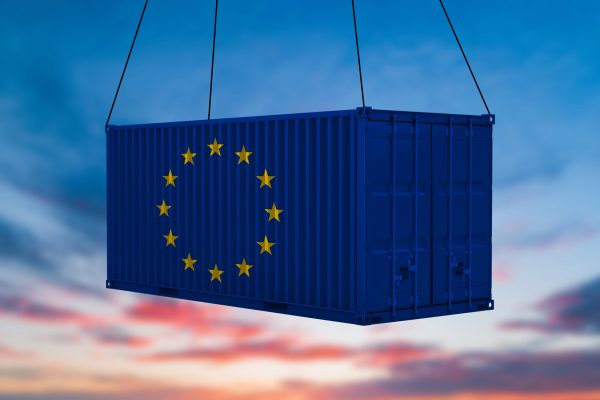EU-Afghanistan Trade Is Expanding, But Trade Is Not Recognition
3 minute readPublished: Friday, October 10, 2025 at 12:18 pm

EU-Afghanistan Trade Sees Slight Increase Despite Sanctions
Despite ongoing sanctions against the Taliban regime, trade between the European Union and Afghanistan has shown a modest uptick this year. According to the Taliban's Ministry of Industry and Commerce, trade is flowing smoothly, with exports from Afghanistan to European countries exceeding $17 million in the first eight months of 2025, while imports reached nearly $143 million. Key trading partners include Germany, Sweden, France, Italy, the Netherlands, Spain, and the United Kingdom.
The Afghan Chamber of Commerce and Investment notes that trade relations are expanding, despite challenges such as a lack of transit and business visa facilities, and the need for standardized export products. The Lapis Lazuli Corridor, which connects Afghanistan to Europe via Turkmenistan, Azerbaijan, Georgia, and Turkey, is seen as a crucial route.
The EU is a significant trading partner for Afghanistan, ranking as its seventh-largest overall trading partner in 2024. Total trade between the two entities reached 302 million euros in 2024, with Afghanistan's exports to the EU at 39 million euros and imports from the EU at 263 million euros. Afghanistan benefits from the EU's "Everything but Arms" arrangement, given its least-developed country status.
However, significant hurdles remain. High transportation costs due to infrastructure limitations, foreign exchange costs, distribution challenges, and policy issues like tariffs are hindering trade. These issues have been exacerbated by the Taliban's takeover of Kabul four years ago. EU sanctions, which apply to five Afghan entities and 135 individuals, including asset freezes, further complicate matters.
The EU continues to provide humanitarian aid to Afghanistan, with over 161 million euros provided in 2025 through partner organizations. The EU does not recognize the Taliban regime, maintaining that recognition is contingent on the regime respecting international obligations. Prior to the Taliban's return to power, the EU provided substantial development aid to Afghanistan. The EU maintains engagement with Afghan civil society and the Taliban to seek dialogue.
BNN's Perspective: While the increase in trade is a positive development, it's crucial to remember that it doesn't equate to recognition of the Taliban regime. The EU's focus on humanitarian aid and engagement with civil society is a balanced approach, but the long-term stability of Afghanistan hinges on the Taliban's adherence to international norms and respect for human rights. The EU's stance is a delicate balancing act, attempting to support the Afghan people while holding the regime accountable.
Keywords: EU-Afghanistan trade, Afghanistan exports, EU imports, Taliban sanctions, Lapis Lazuli Corridor, humanitarian aid, European Union, trade relations, Afghan Chamber of Commerce, Everything but Arms, international obligations, Taliban regime, trade challenges.